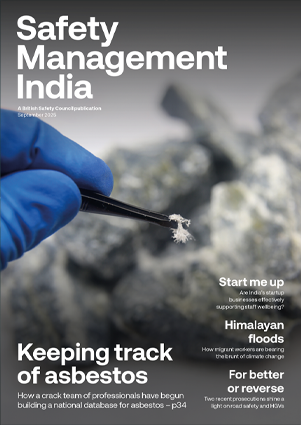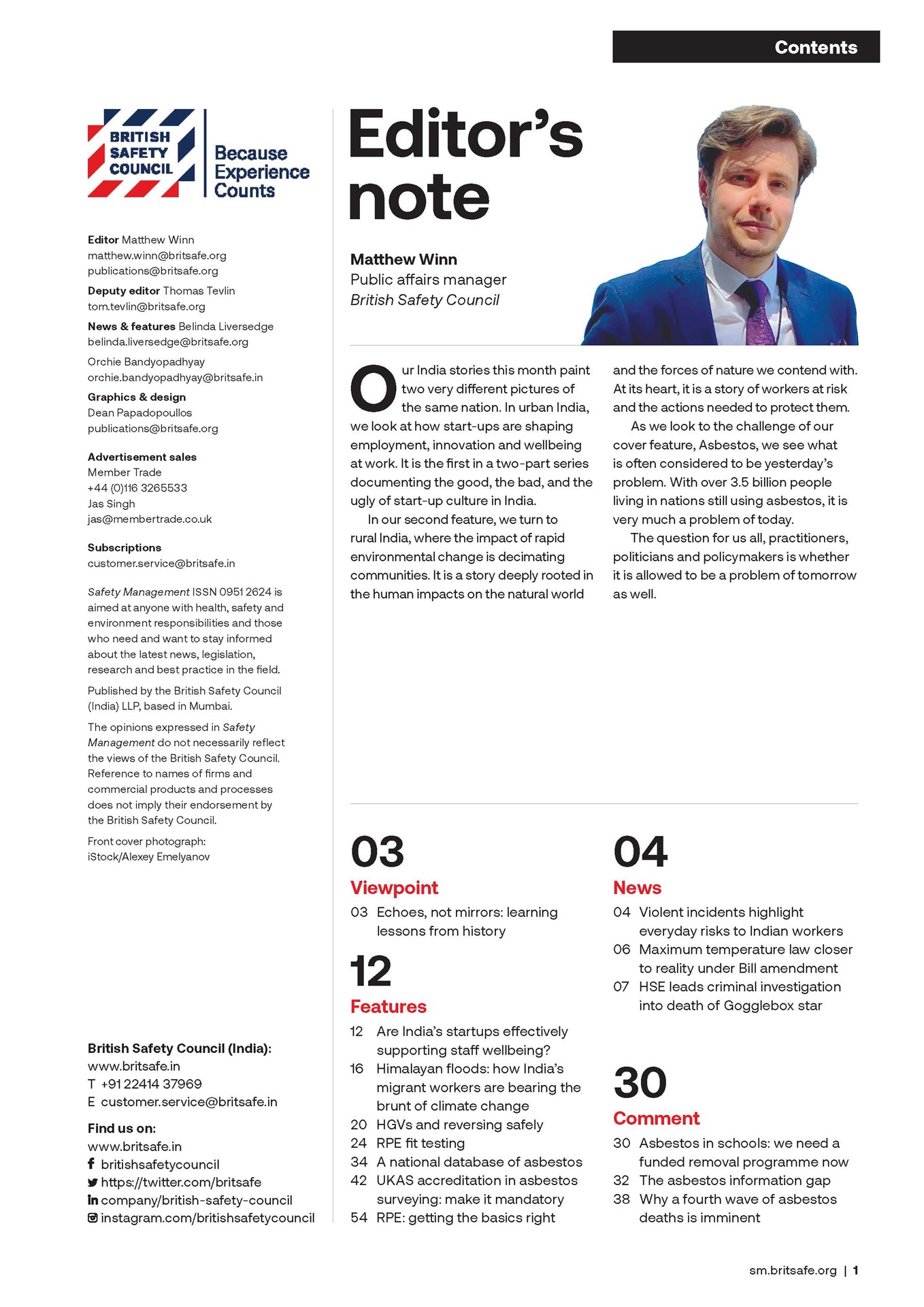Sir Charlie Mayfield’s independent report for the government has set out a plan to get hundreds of thousands of "economically inactive" people in Britain into work and prevent more from quitting.
News
Mayfield proposes ‘new deal’ for workplace health in final report to government
Over one in five working-age adults are out of the workforce, substantially because of health problems, says the Keep Britain Working Review published yesterday.
That follows a 40 per cent rise in the number of people out of work due to ill health since 2019 – or 800,000 more people dropping out of the workforce.
The backdrop to this is a 'sharp rise in mental ill-health among young people, older workers leaving too early and disabled people remaining locked out of work at twice the rate of non-disabled people,' says the report.
 The UK faces a ‘quiet but urgent crisis’, says Mayfield. Photograph: iStock
The UK faces a ‘quiet but urgent crisis’, says Mayfield. Photograph: iStock
Former John Lewis boss now says the UK faces a "quiet but urgent crisis" with another 600,000 people set to leave work by 2030.
Mayfield's plan to retain and attract people into work proposes to “rebalance and rehumanise” workplaces, which too often treat employees as “risks rather than as people to invest in.”
A “culture of fear” pervades workplaces today around ill health, says Mayfield, with employees fearful of disclosing health conditions because of stigma or damage to career prospects.
Changes will require a "new deal" between employers, government and employees, one which will see person-centred approaches come to the fore and a culture of fear around disclosing ill health banished from workplaces.
 A “culture of fear” pervades workplaces today around ill health, said Mayfield, with employees fearful of disclosing health conditions because of stigma. Photograph: iStock
A “culture of fear” pervades workplaces today around ill health, said Mayfield, with employees fearful of disclosing health conditions because of stigma. Photograph: iStock
Among the key practical changes proposed are:
- Taking person-centred approaches and recognising the need to invest in employees.
- Engaging willing employers to act as ‘vanguards’ for a three-year programme, involving developing new ‘stay in work’ and ‘return to work’ plans and defining best practices.
- Establish a Healthy Working Lifecycle – the basis of a common, outcome-based philosophy around work, health and disability across the UK for general adoption.
- Strengthen the data and evidence for what works by creating a Workplace Health Intelligence Unit: analysing what works best across conditions, sectors, and cohorts.
- Create a national data asset that allows predictive analytics, AI and new service platforms to emerge and drives innovation in supporting earlier intervention and prevention.
- Incentivise good work – i.e. tax relief on investments in workplace health and adjustments that enable people to stay in work and in government procurement.
- Reasonable conditionality for accessing occupational sick pay, such as a requirement to engage with support where that is provided.
- Improved workplace health provision.
In Mayfield’s letter to government in which he enclosed his report, he says: “Employers are uniquely placed to ‘do’ prevention - by encouraging safe and early conversations about emerging health issues, supporting people swiftly, and offering flexibility for treatment. They can act on prevention in ways the NHS can never do alone.”
“Work and health are not always easy partners, but they are mutually reinforcing. Supportive workplaces matter and so does personal responsibility,” he adds.
Industry reaction
The British Safety Council welcomed the report’s “clear call for joined-up, systemic action” to tackle health-related economic inactivity.
Commenting, Peter McGettrick, Chairman of British Safety Council, said: “For too long, issues linking long-term health conditions, disabilities and economic inactivity have been treated in isolation, when in fact they are deeply connected. The proposed ‘Healthy Working Lifecycle’ offers a practical roadmap to help employers of all sizes build healthier, more inclusive and more productive workplaces.
“We particularly support the emphasis on prevention, early intervention and shared responsibility between government, employers and individuals. These principles align strongly with our own mission to create safer, healthier working lives for everyone, and health, safety and wellbeing professionals are a vital part of the solution.”
Prospect trade union welcomed the focus from government on health and safety at work.
Mike Clancy, General Secretary commented: “We support the ambition to drive up standards across the economy.
“There is a clear role for regulation to play here but we need to ensure the Health and Safety Executive is properly resourced to undertake this mission.
“Ultimately the biggest improvements in health and safety at work come when employers and unions work together, which is why it is so important that unions are fully engaged in this process. Together we can spread best practice industrial relations across the economy in the coming years.”
NHS chief, Matthew Taylor, who authored the Good Work Review for the Conservative government in 2017 which identified wellbeing as one of the five foundational principles for thriving at work, called it a “ground-breaking review.”
“By working together across sectors, we can stem the flow into economic inactivity and unlock the potential of a healthier, more prosperous population,” he said.
“Health leaders know that employers have a vital role to play in delivering the shift from treatment to prevention – by creating healthier workplaces and supporting staff to stay well and in work.”
Keep Britain Working: Final report here


NEWS

High temperatures may be increasing the risk of kidney disease among Tamil Nadu’s farm workers, concludes study
By Orchie Bandyopadhyay on 10 November 2025
Tamil Nadu’s agricultural workers may be facing a growing risk of chronic kidney disease linked to heat exposure, dehydration and long outdoor workers hours, according to a new study.
Mayfield proposes ‘new deal’ for workplace health in final report to government
By on 01 January 0001

